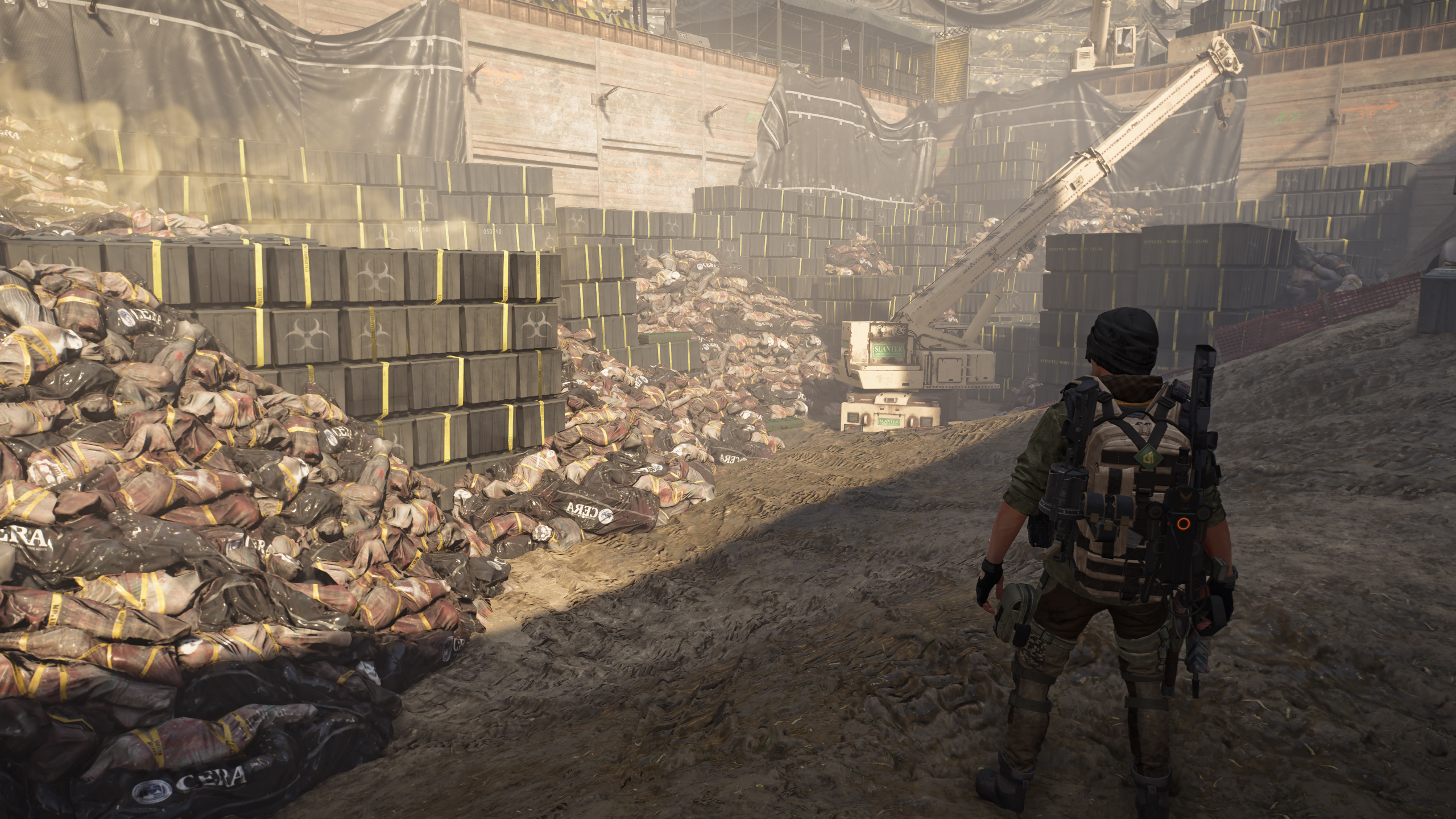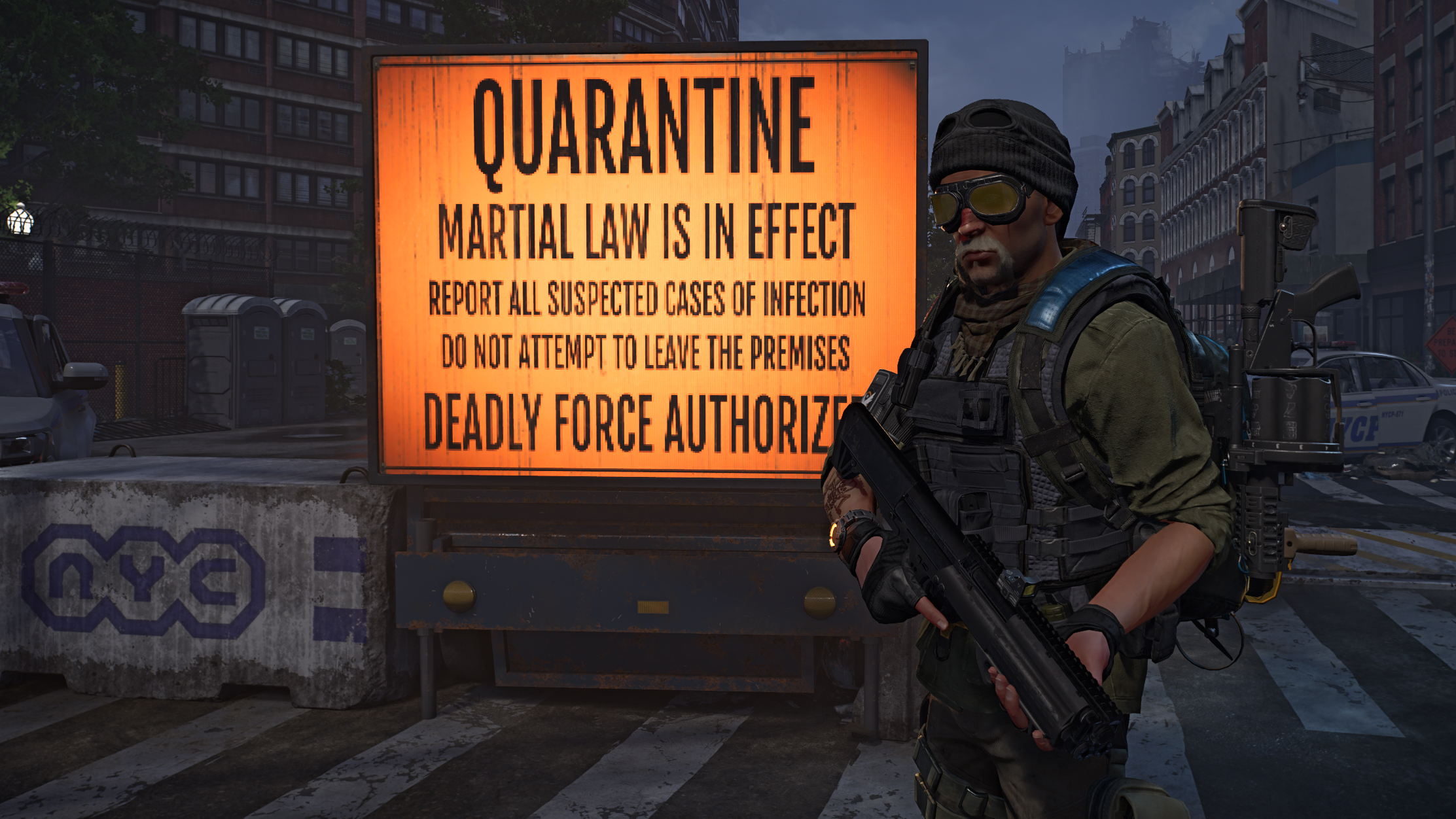Playing The Division 2 is the opposite of escapism right now
I wound up playing The Division 2 a bunch over the past couple weeks. It has a ton of enjoyably repetitive things to do, both in Washington DC and in Manhattan as part of The Warlords of New York DLC. I didn't get too far into it when it first came out, but right now it's absolutely clicking with me. Running around the cities, taking over control points, rescuing hostages, fighting for turf, shutting down enemy broadcasts, and partaking in my absolute favorite activity: Hunting for hidden SHD caches (briefcases), which usually involves climbing around on buildings and solving environmental puzzles to reach them. I love it. If there were DLC that added 100 more SHD caches to find I would buy it in a second.
As a distraction from the real world, though? The Division 2 is not the best choice. It's hard to think of a worse choice, really.
As much fun as I'm having finding briefcases and slowly completing every objective on both maps, playing The Division 2 is a deeply weird experience these days. Most obviously, that's because it takes place in a world devastated by a pandemic, and coming across pits full of body bags immediately puts the current reports of mass burials due to COVID-19 in mind. It might have been fiction when it was written, but not anymore.
There are contaminated areas of DC where my character will automatically put on a facemask as he enters, where the HUD shows surfaces absolutely crawling with biological contaminants—which is a pretty accurate representation of my mental state when I have to put on a mask and run errands in real life. "If I can just complete this thirty-minute shopping trip without touching anything or taking a single breath, I'll be fine!"
Plus there's graffiti, burned cop cars, and people being assaulted in the street by heavily armed goons, which brings to mind the ongoing Black Lives Matter protests. And in The Division 2, I'm one of those heavily armed goons. I'm a federal agent. A secret federal agent who was activated when order in the cities fell apart. I run around in full combat gear, a mysterious agent of a shadowy government organization—just like we're seeing happen right now in Portland, Oregon.

It's weird to shoot someone for the crime of sifting through garbage in the post-apocalypse, especially when I'm the guy looting the absolute nuts off the city—going through every box, backpack, and rooftop garden I find, filling my pockets with bottles of water, food, first-aid, and other supplies without stopping to consider that it might belong to someone else. Yes, I donate the food and water to friendly citizens who are trying to rebuild safe zones, but I'm not really sure who I'm stealing from to do so. A backpack on the street probably belonged to someone who died. A bunch of food and water in a courtyard or on a secluded roof? No idea whose that is. They could be alive but hiding in fear somewhere, for all I know. But I still just help myself to their stuff because… I'm a hero?
I guess it was always weird to do that, but now it feels extra weird. The original Division game was problematic, too: Enemies weren't always heavily armored evil commandos but sometimes just people wearing hoodies that the game designated as enemies. There was a faction called "Rioters" you had to kill. The penalty for any crime in the world of The Division, be it murder, attempted murder, carrying a gun, looting supplies—as long as you have a red enemy icon over your head while doing it—is death.
In The Division games, you're a federal agent killing American citizens for the crime of doing literally anything. That's already pretty fucked up on its own, let alone in the light of what's happening in the county right now.

Ubisoft has often claimed its games aren't political—from The Division to Far Cry 5 to Ghost Recon: Wildlands—which always felt like an absurd statement and more likely a way to avoid drawing complaints from gamers who want to keep politics out of games. Being openly political is "bad for business," as Ubisoft Massive COO Alf Condelius said in 2018.
But as real life begins to catch up to the The Division, it's much easier to see not just a what-if fantasy scenario but an openly political point of view being presented, and it's one shared by much of the current leadership of the United States: In a crisis, send in heavily armed federal agents to take control and restore order. Trust them, even if you don't know exactly who they are or who they report to. Their use of violence is completely justified, and what they're doing is unquestionably right.
That's not non-political or apolitical. That's an explicit political message, the very thing Ubisoft has repeatedly claimed it wants to avoid.
None of this has stopped me from playing The Division 2, I should add. I'm still taking over control points and rescuing hostages and looting the shit out of the city (because I'm the good kind of looter). I'm still getting a little buzz from leveling up a settlement or solving a puzzle to find another briefcase. The activities provide stress-relief. But the world itself provides no escape.
from PCGamer latest https://ift.tt/2Boh27Q
via Gamers Online





Post a Comment